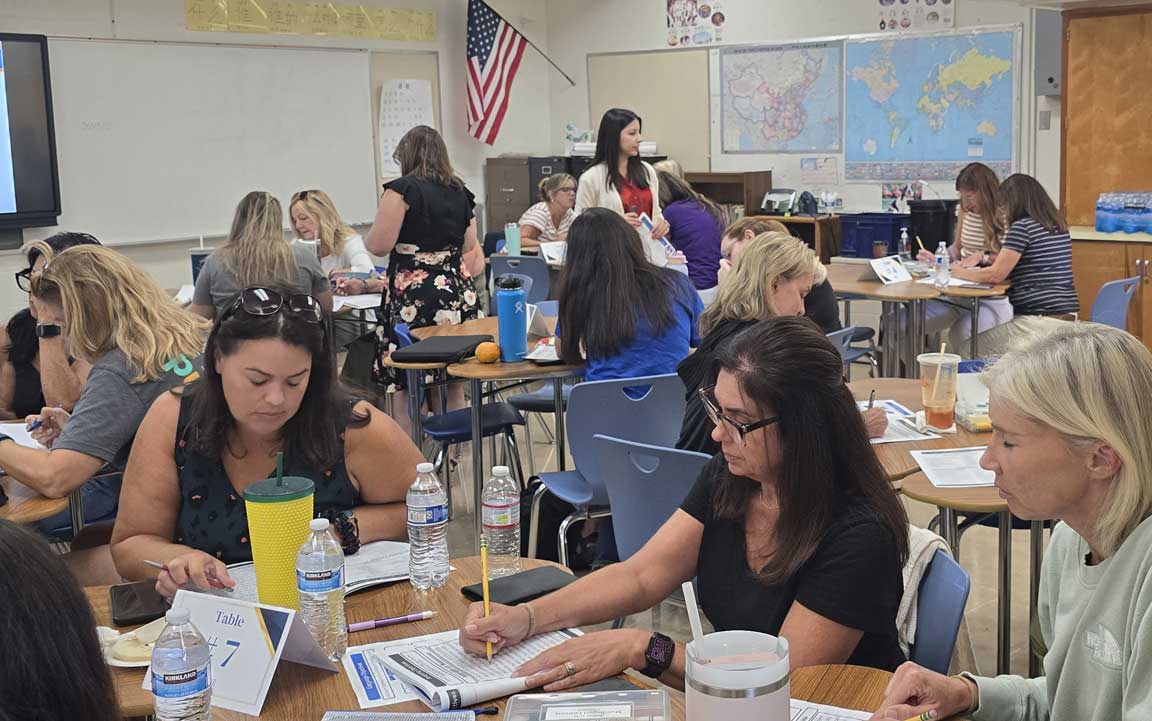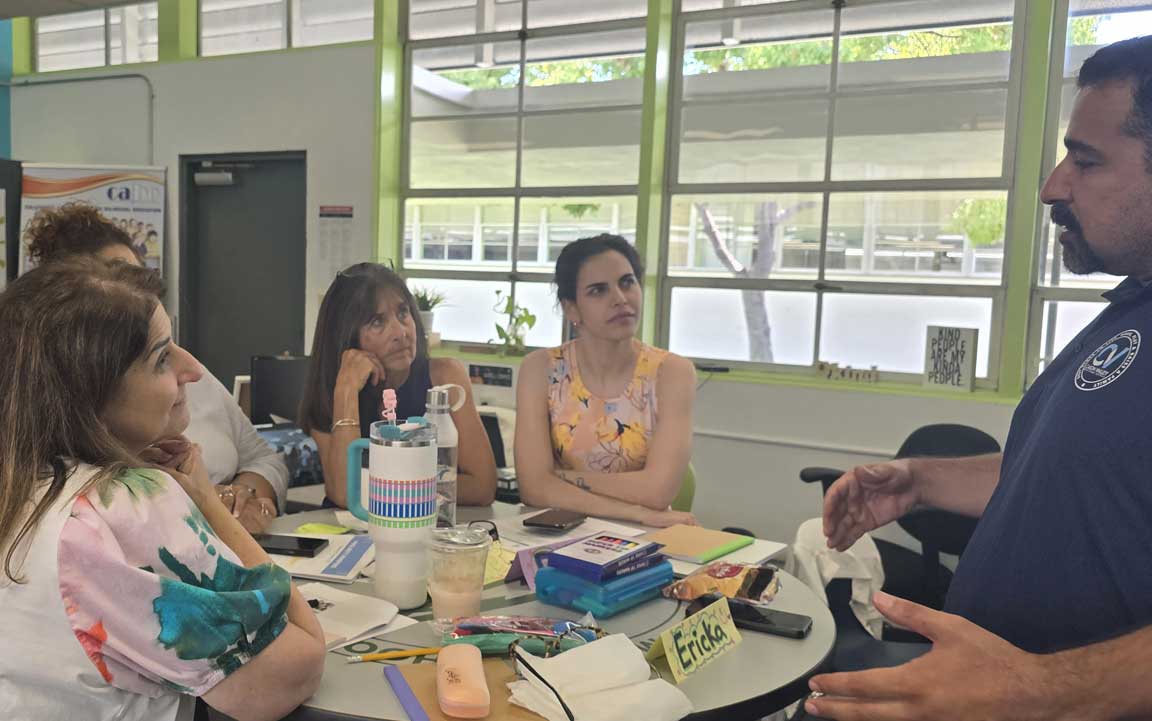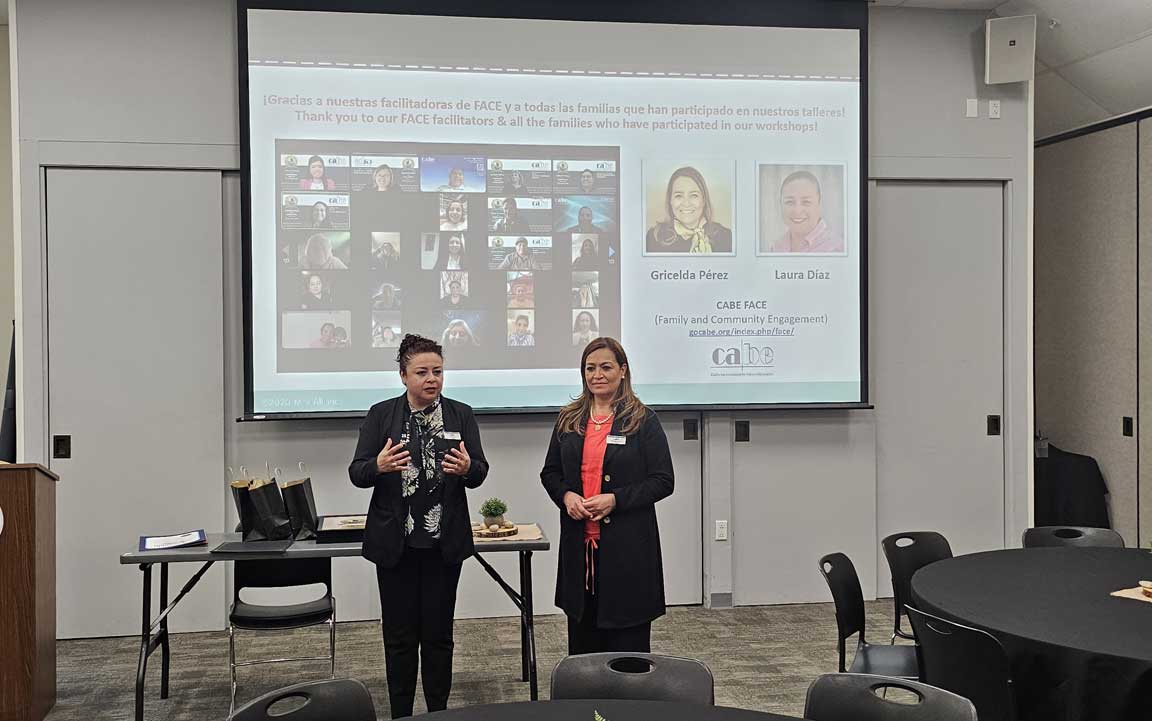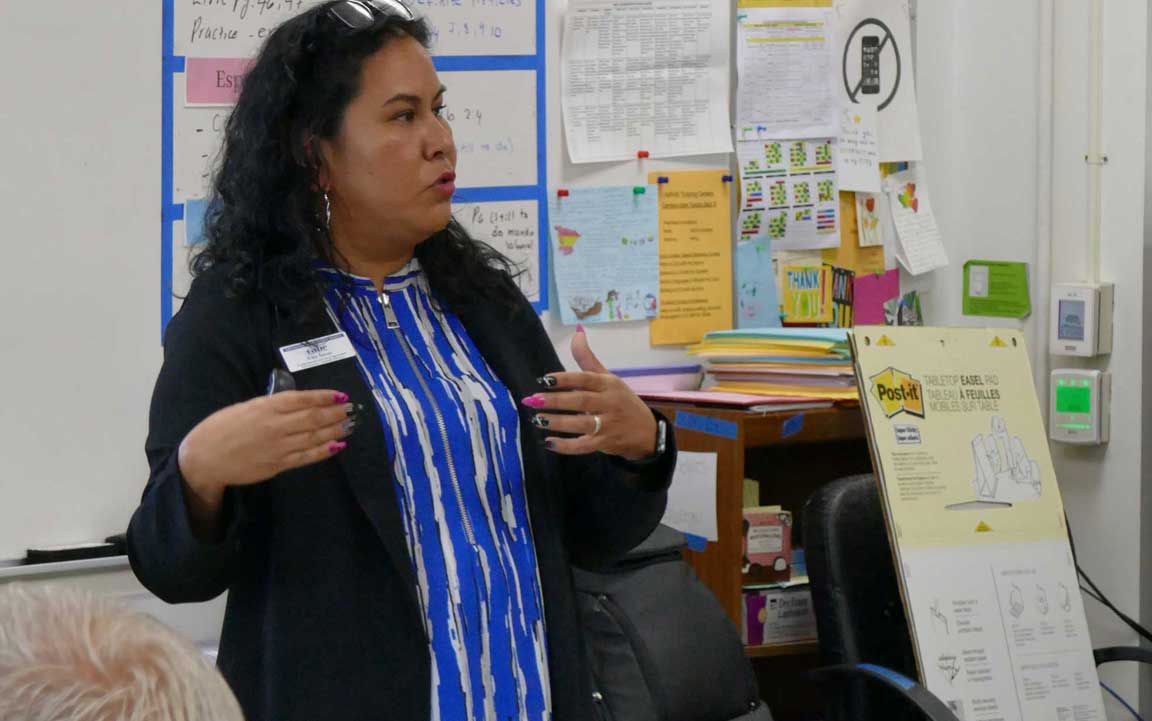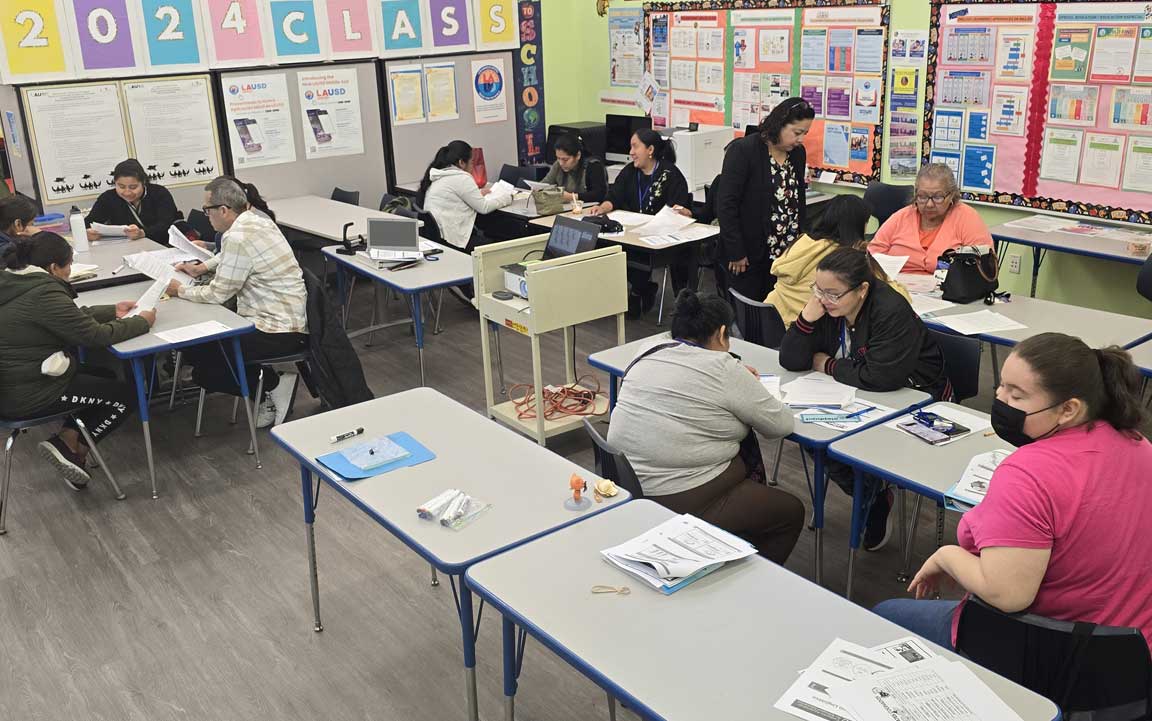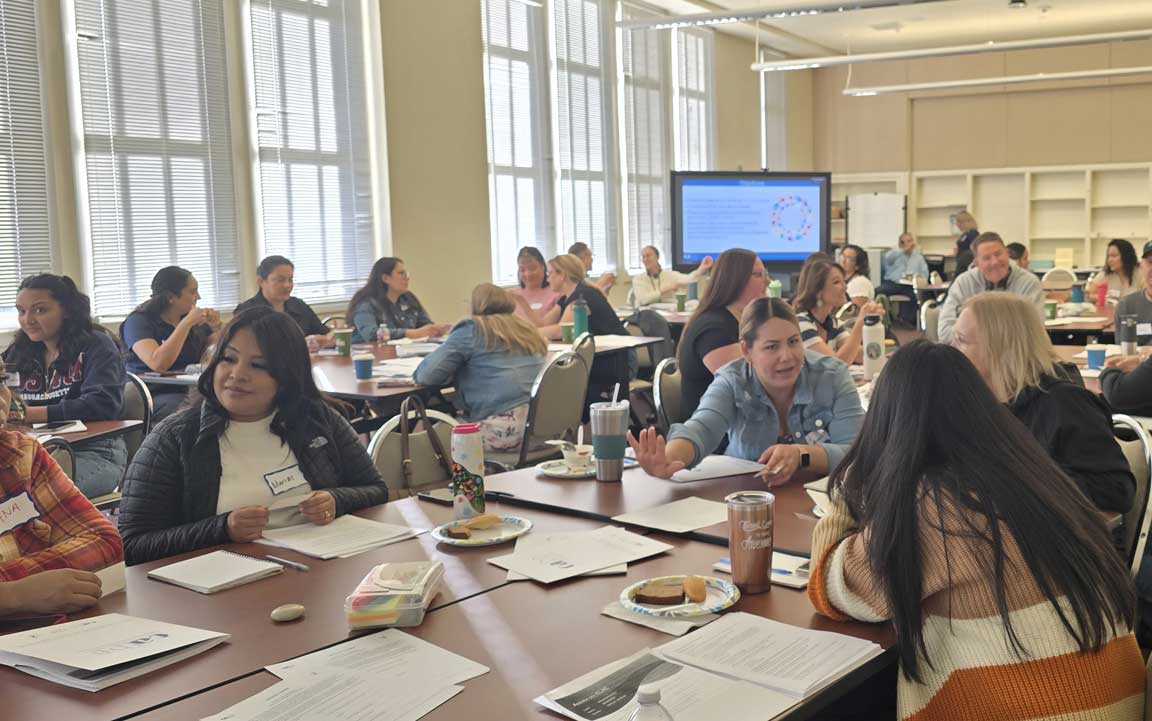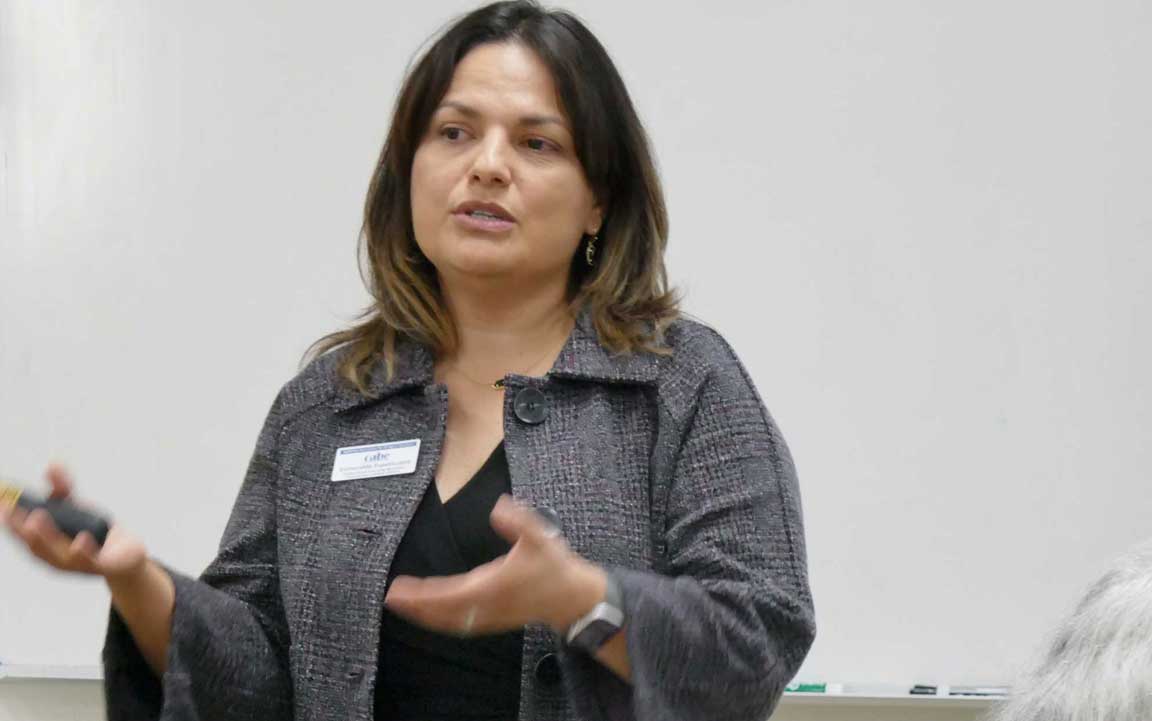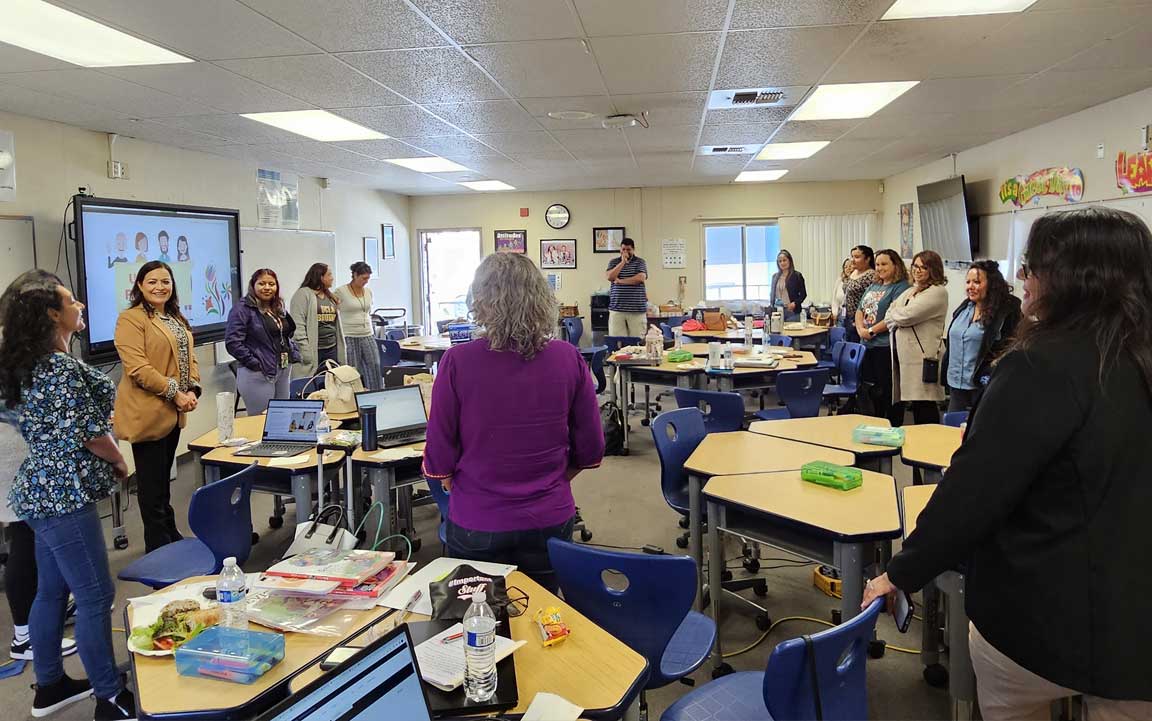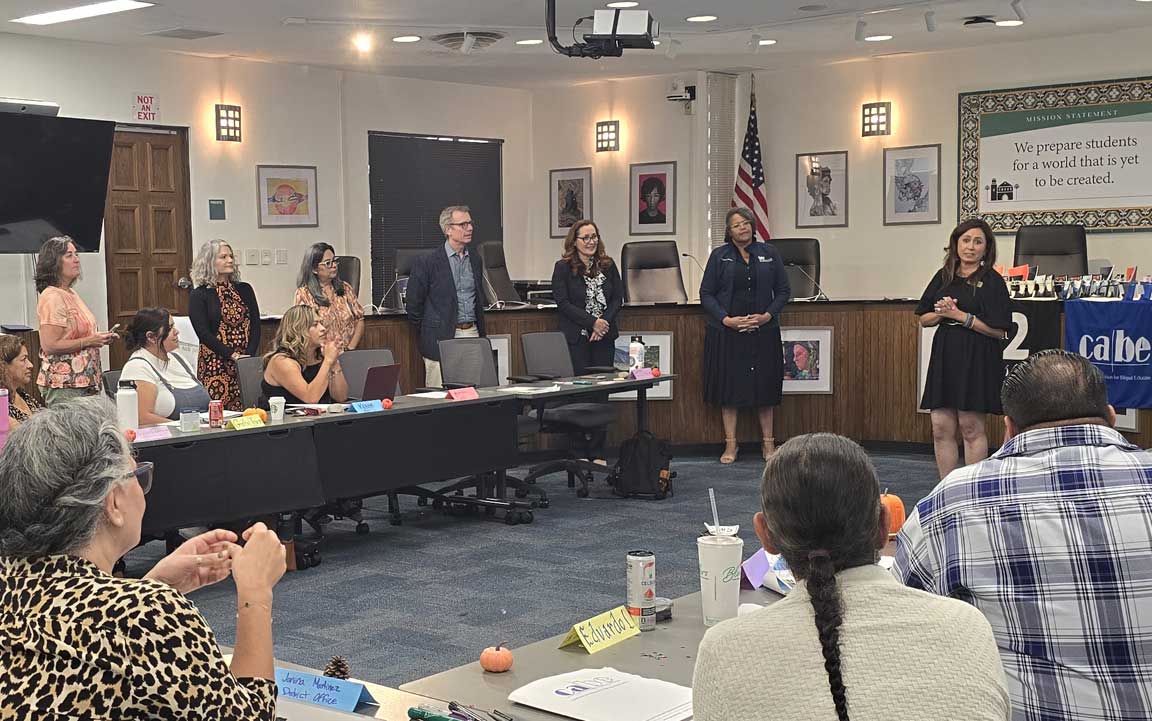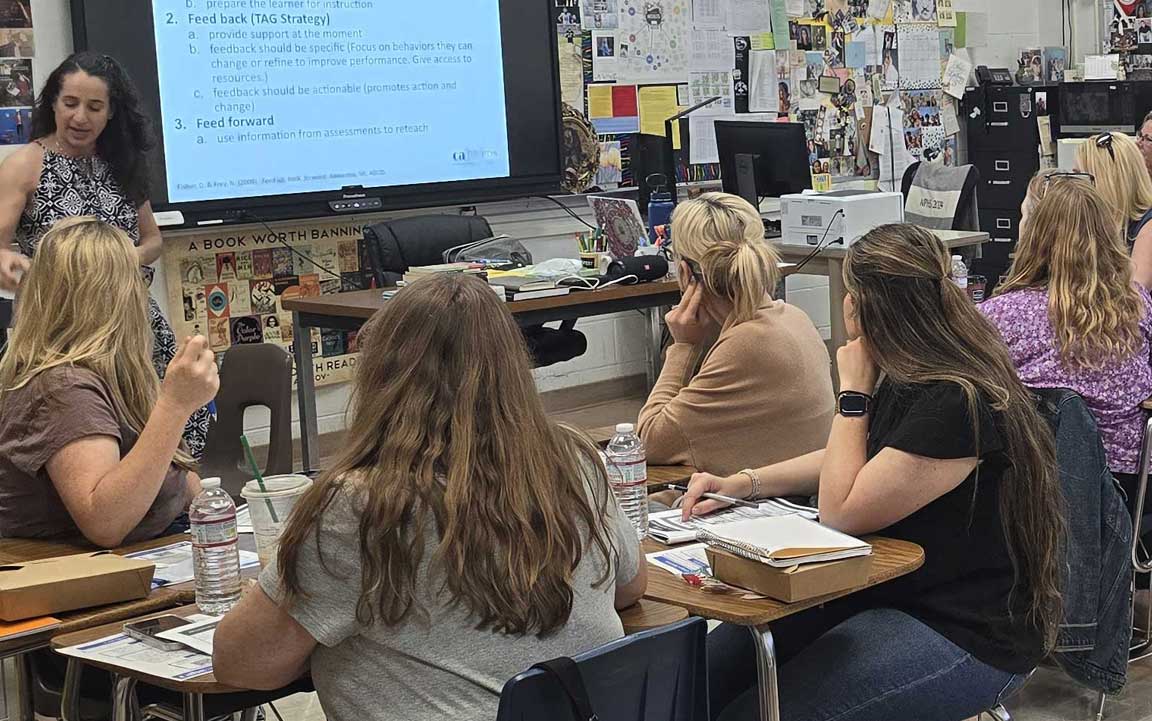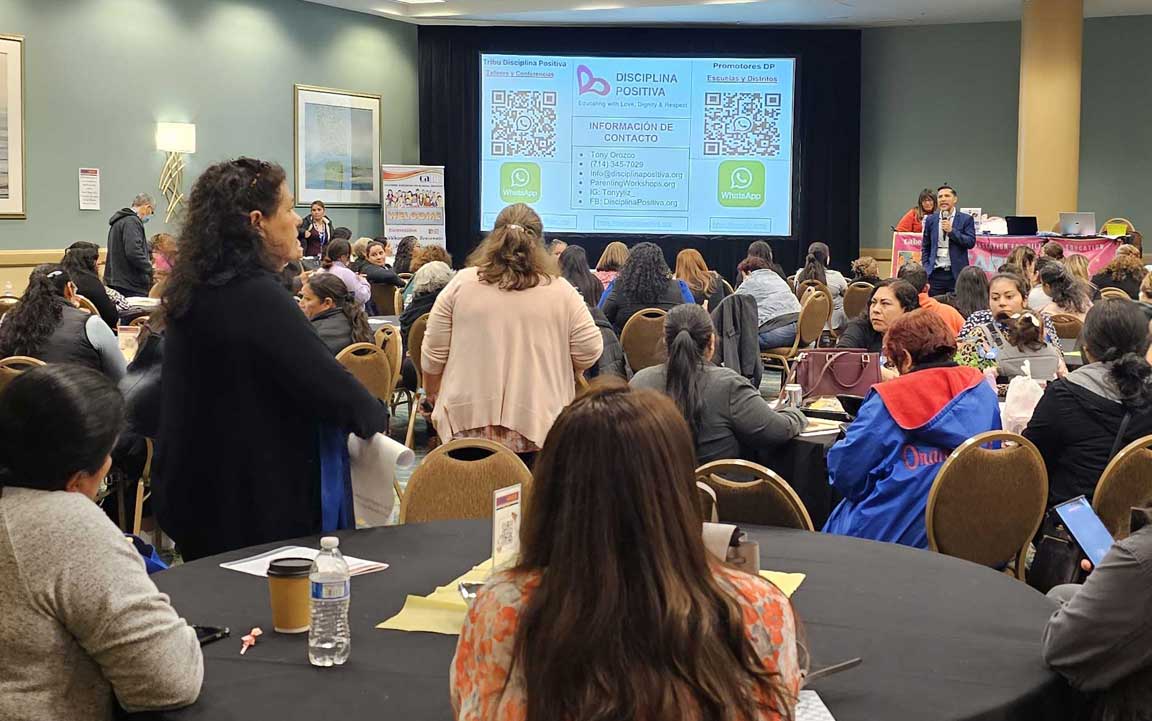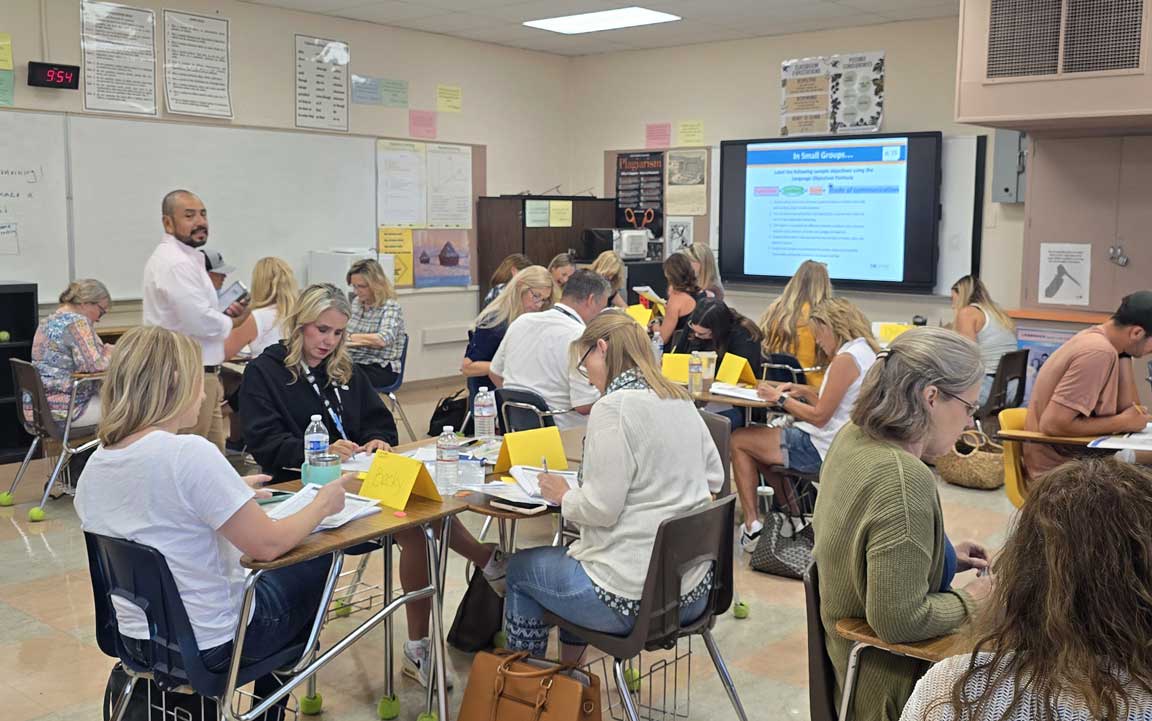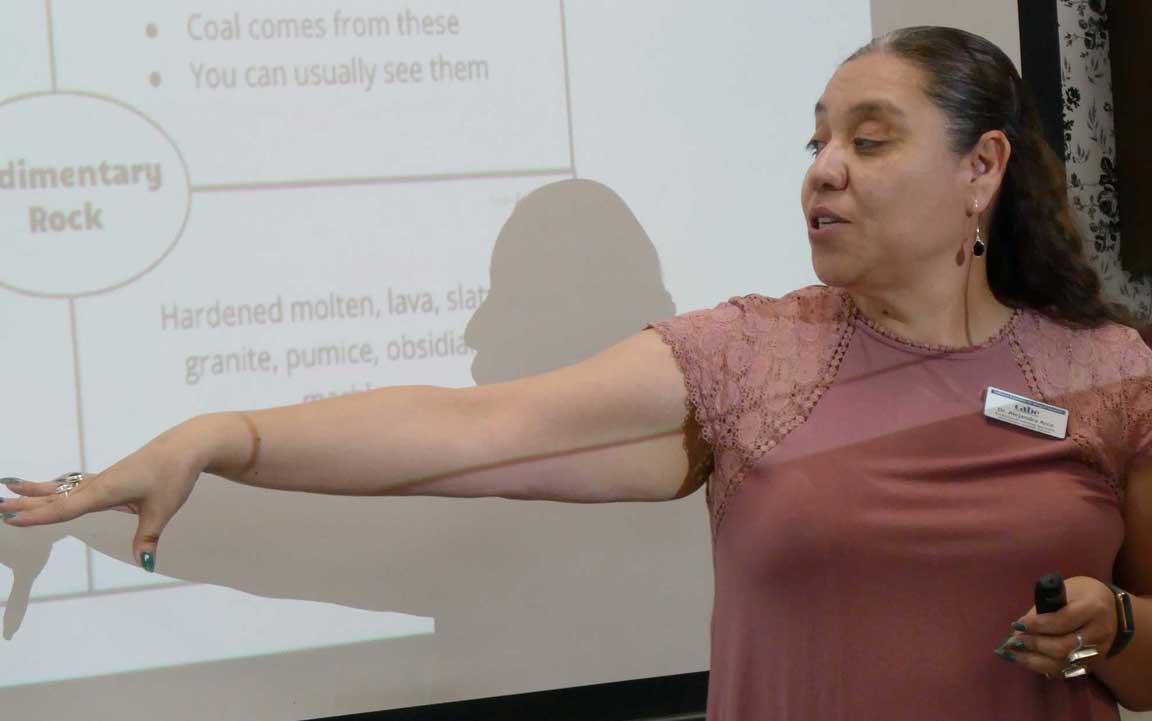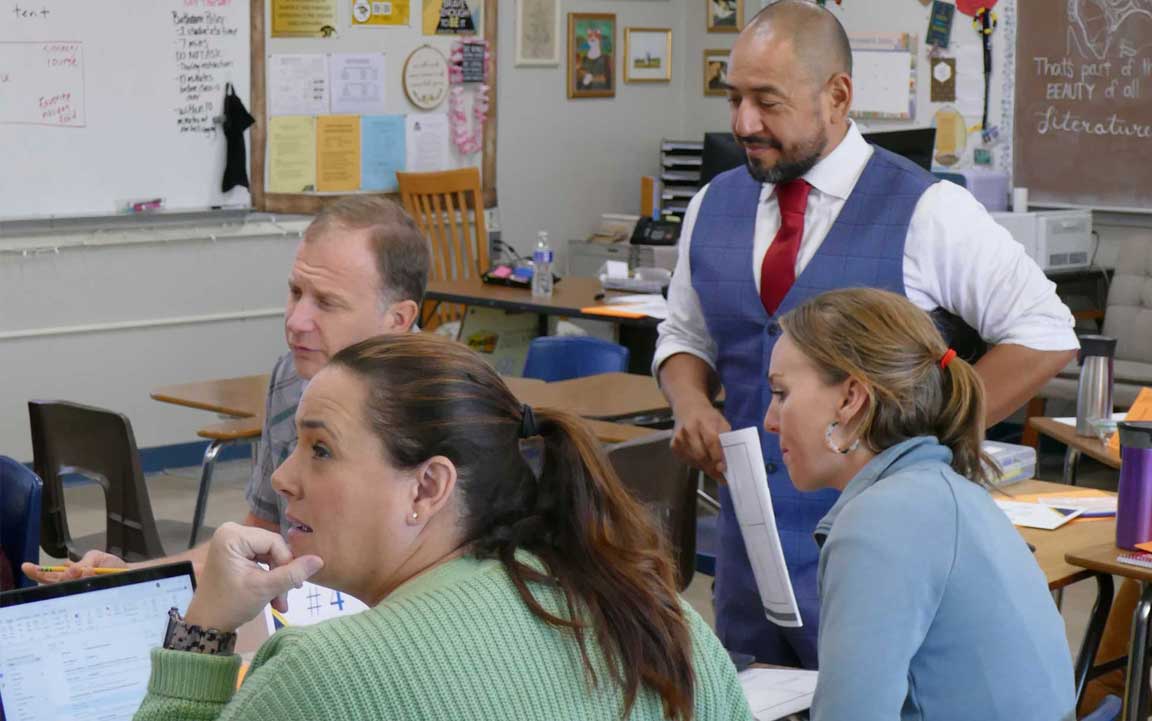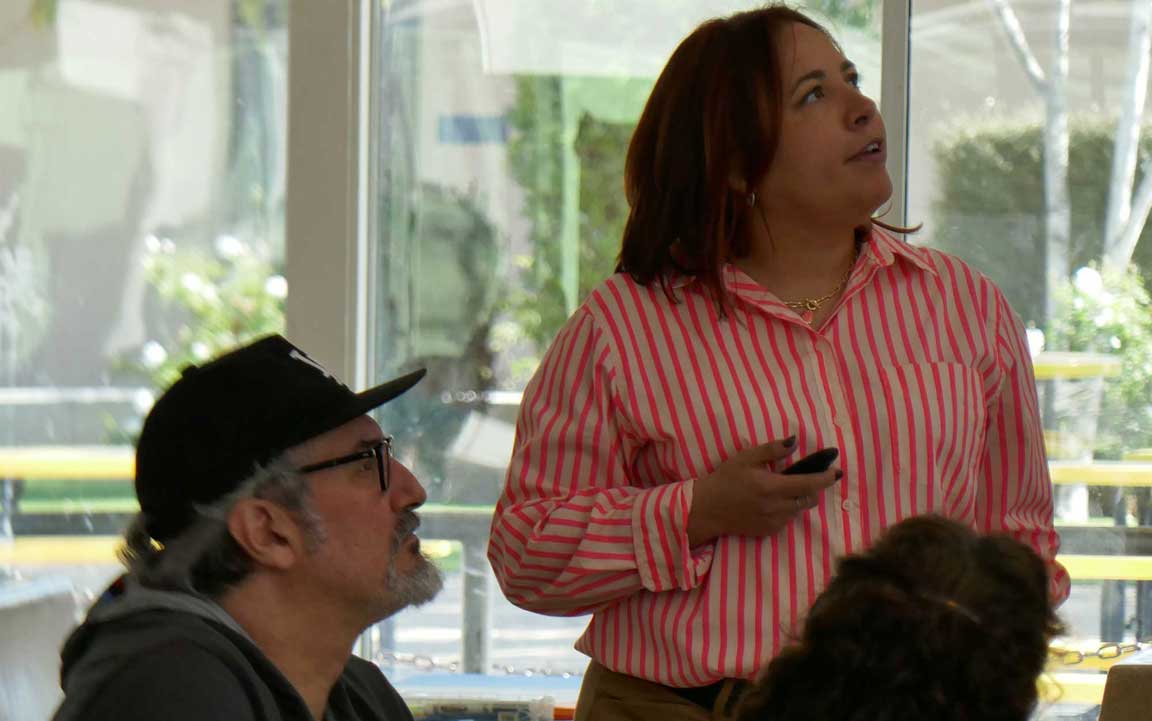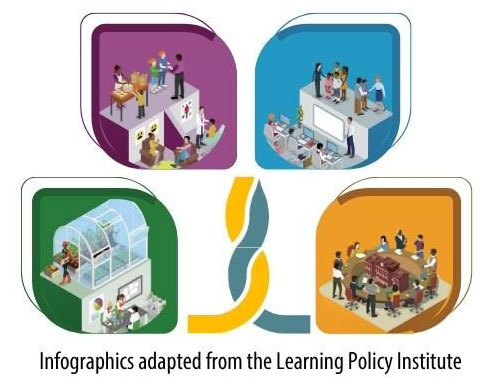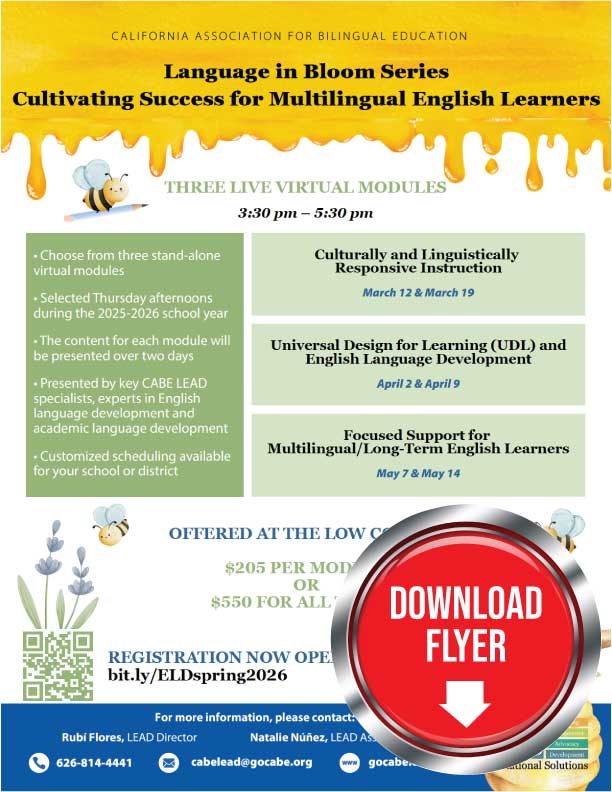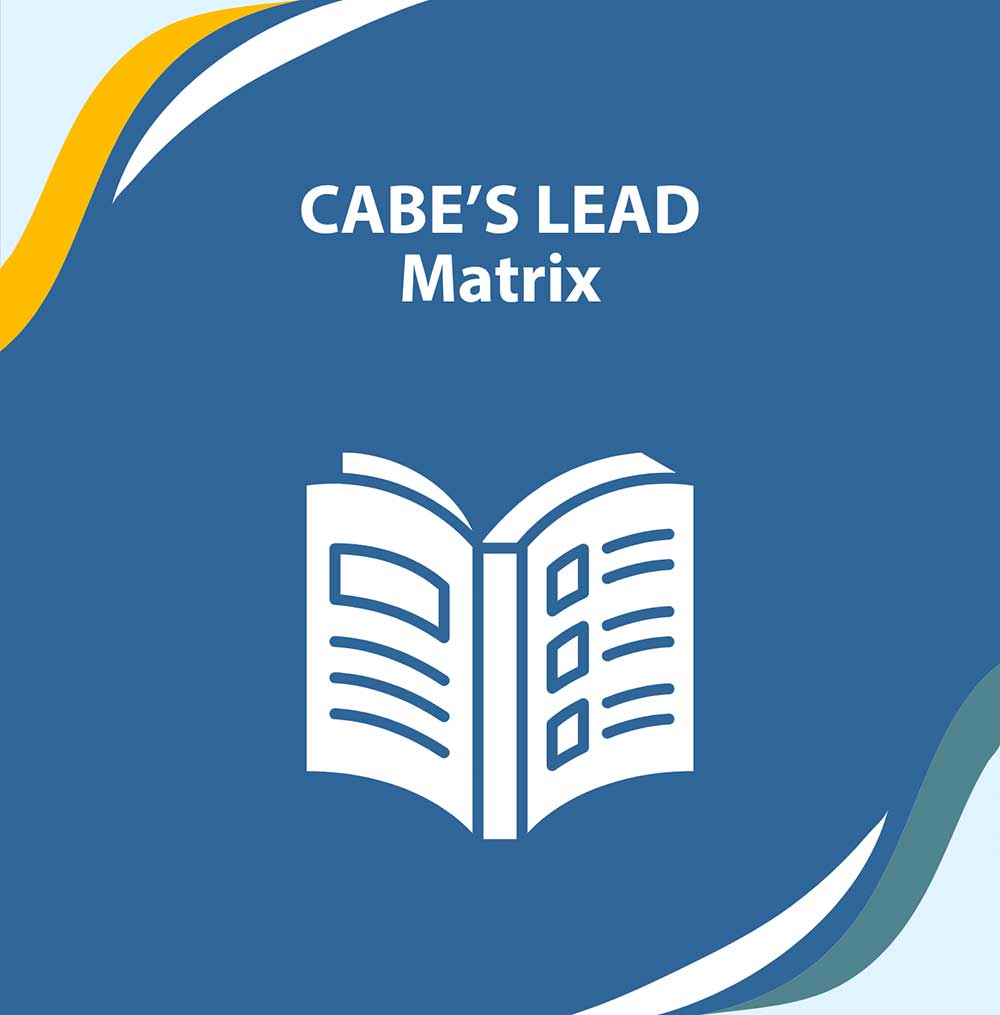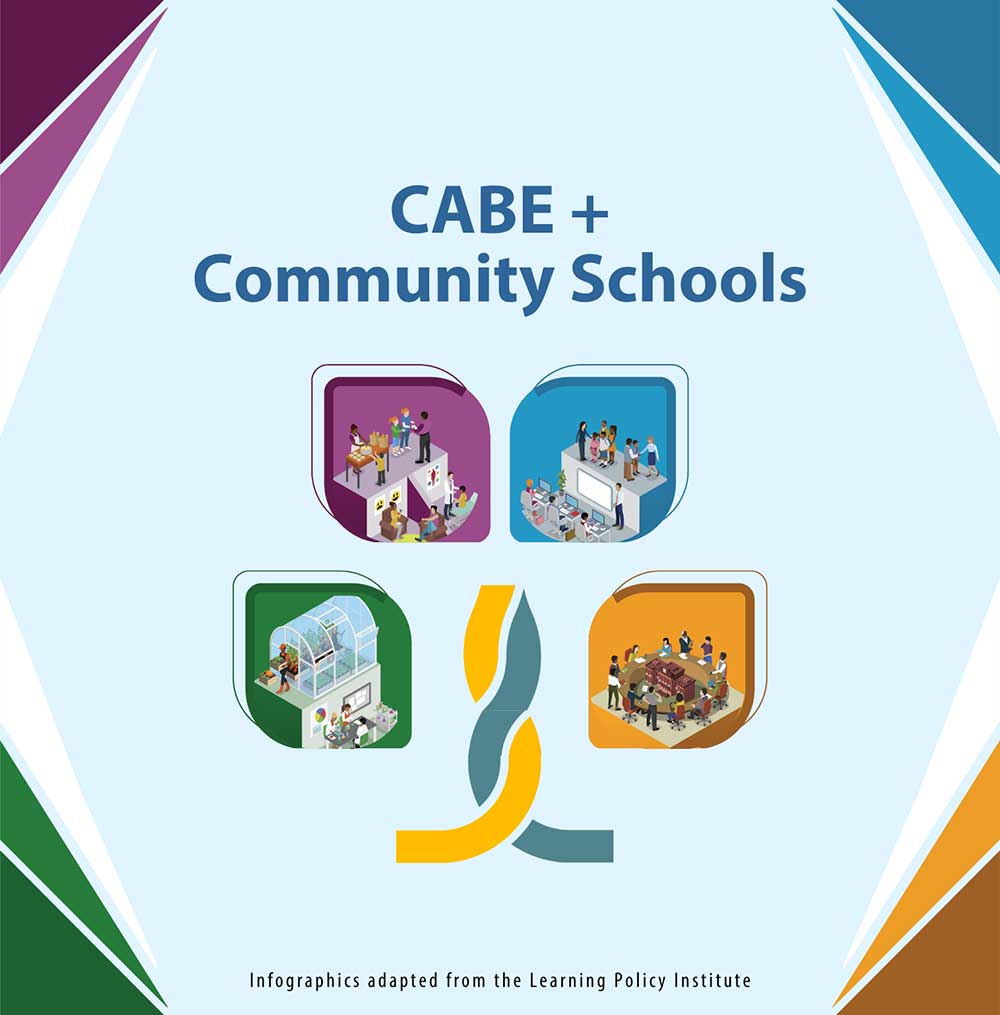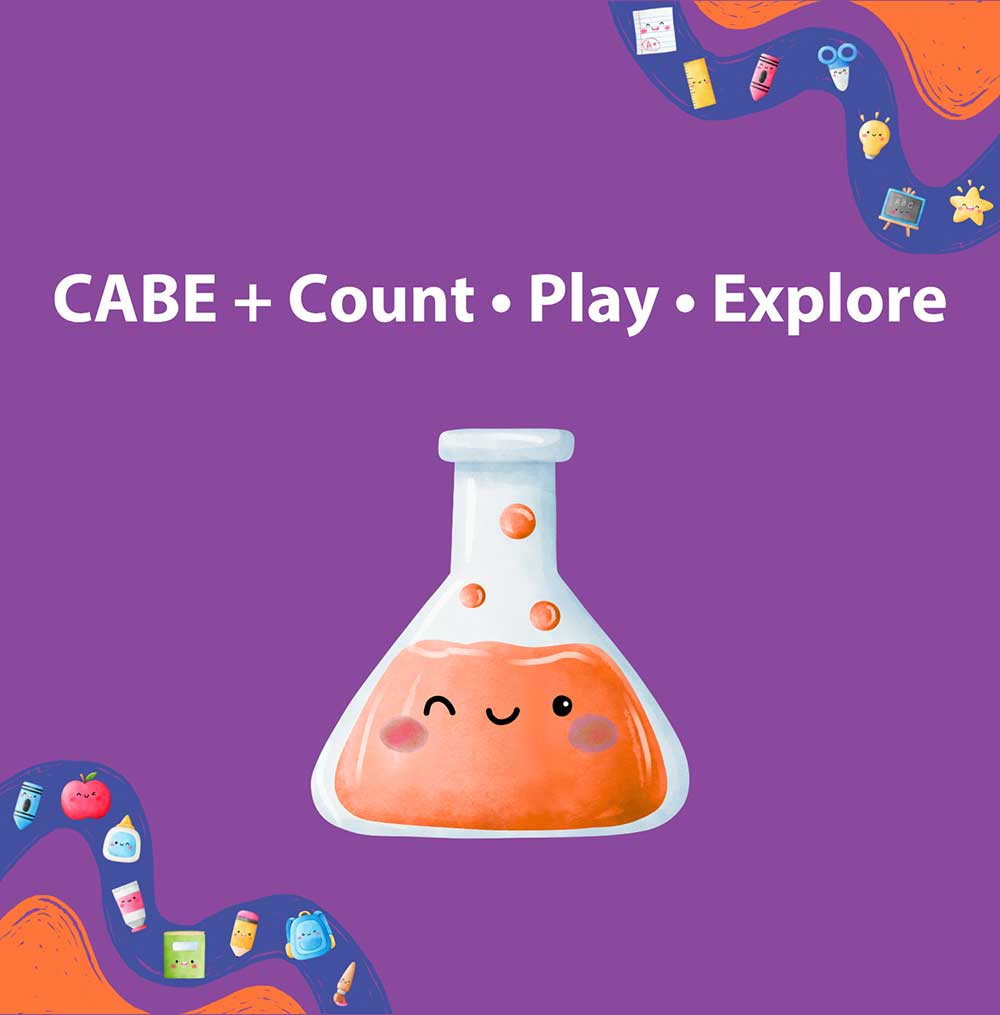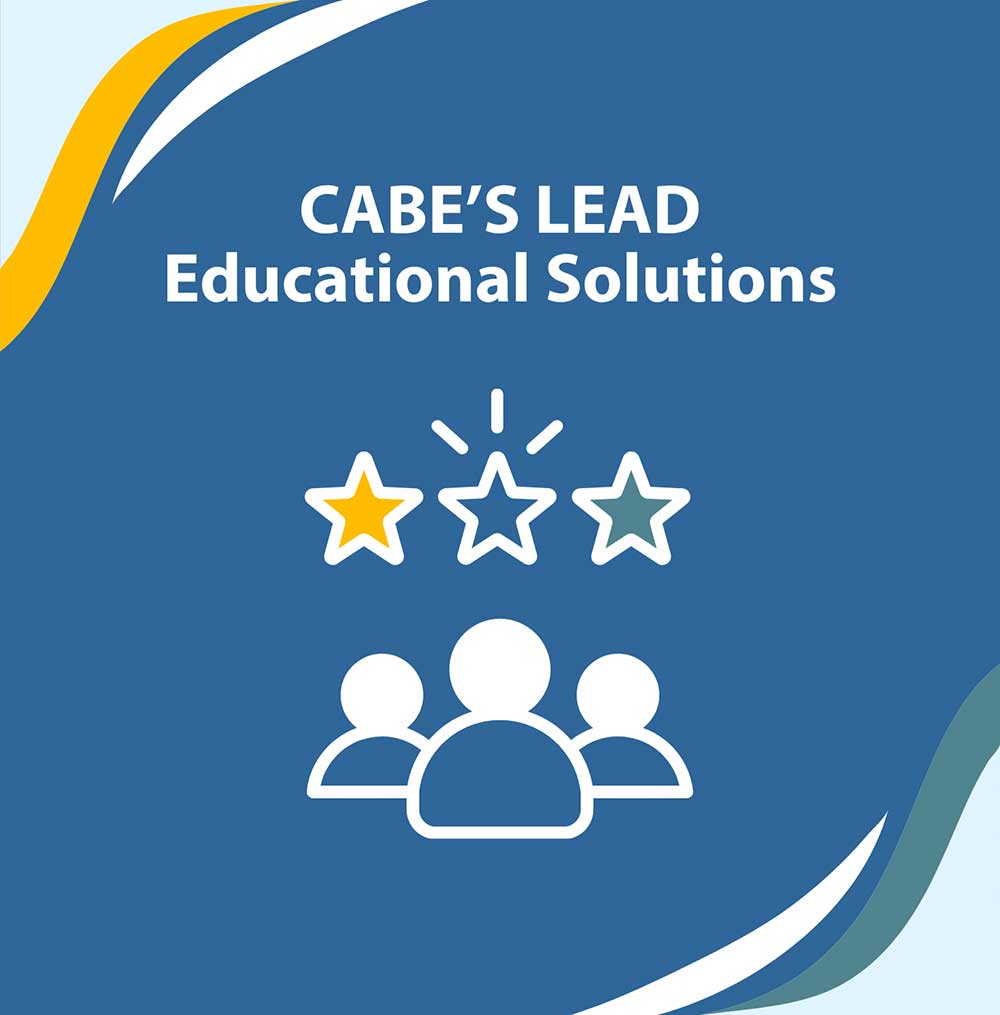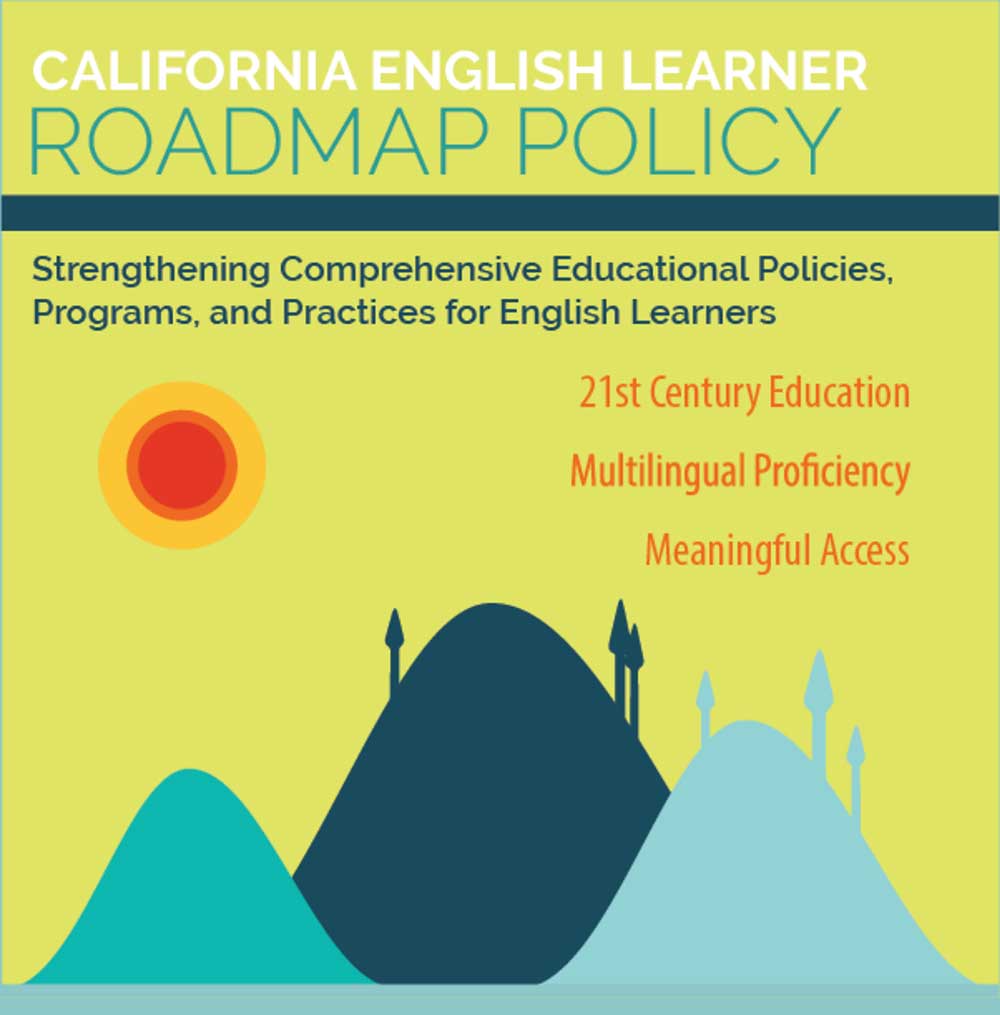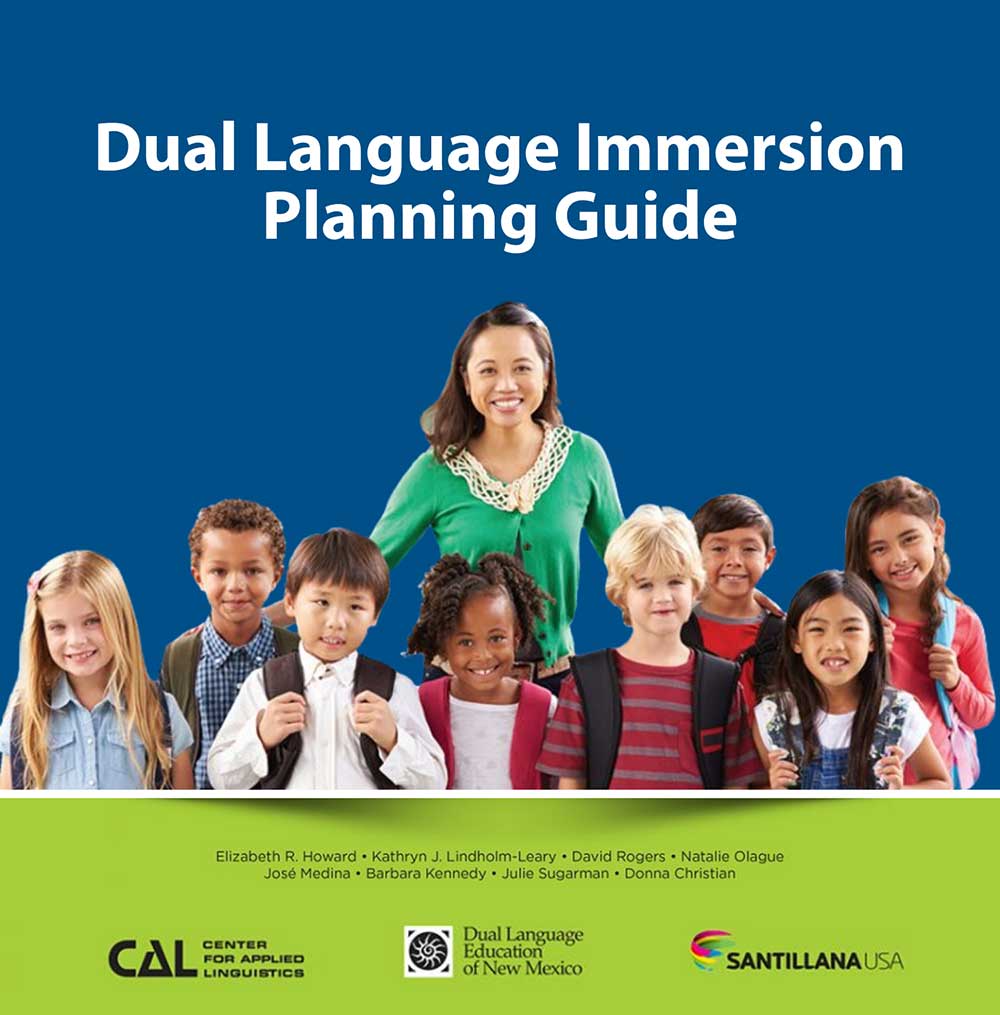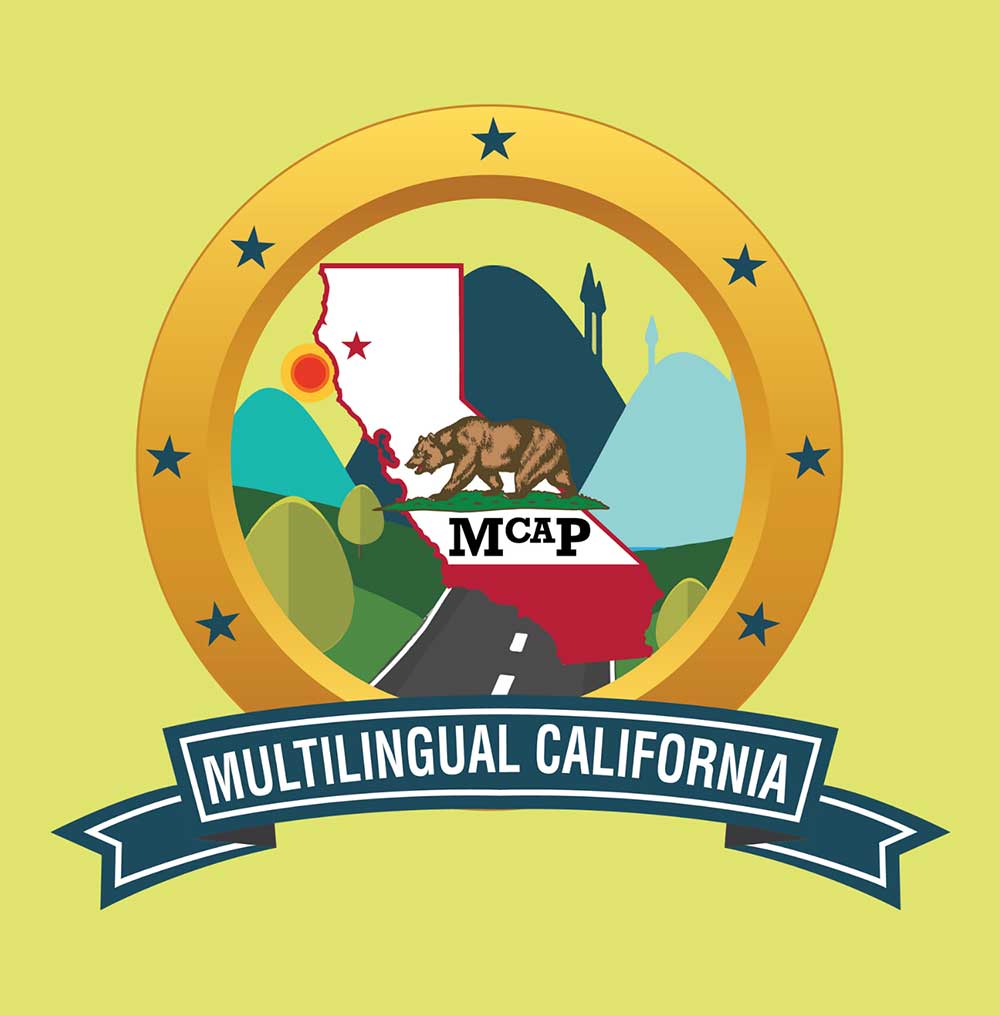LEARNING
ENGAGEMENT
ADVOCACY
DEVELOPMENT
LEADing with the Collective Strengths of Educators, Families, Students, and Communities for Transformative Impact
Why Partner with CABE's LEAD Educational Solutions?
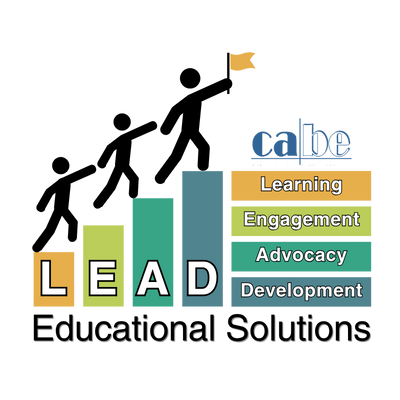
CABE brings over 50 years of experience in providing high-quality professional learning that centers the voices and assets of multilingual, multicultural, and racially diverse communities. As a trusted partner, CABE is here to help you build inclusive, equity-driven community schools where all students and families thrive.
PROFESSIONAL LEARNING SERVICES
Customized professional learning to build culturally and linguistically sustaining classrooms.
Educators
Administrators
Support Staff
Pre-service Teachers
FAMILY & COMMUNITY ENGAGEMENT
Workshops that empower parents and families to become strong advocates for their children.
Families
Students
Caregivers
Community Members
Aligned with the California Community Schools Framework
Partner with CABE to Transform Your Community School Journey! Visit https://gocabe.org/community_schools/
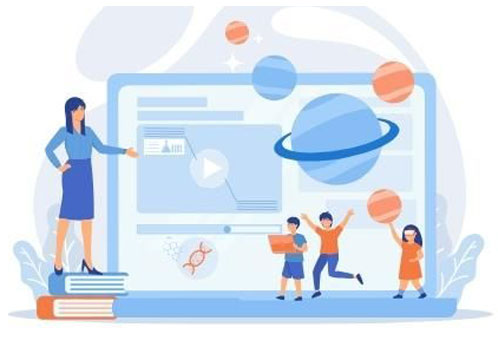
English Language Development Training
Across All Subject Areas and Typologies of Learners
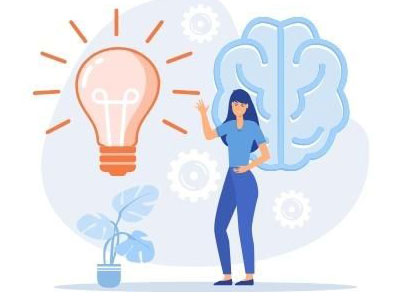
Dual Language Program Planning
and Professional Learning

Family and Community
Engagement Programs
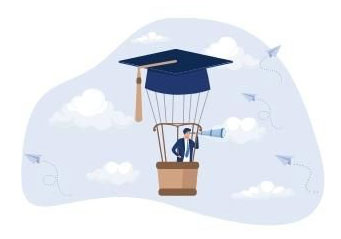
Extended Learning
Opportunity Programs
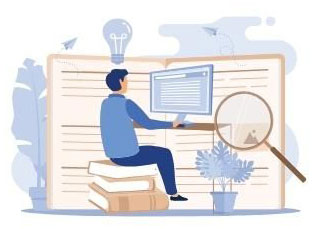
Customized Professional Learning Plans for Educators,
Support Staff, Families, and Community Partners
Our Services
★ In-person, Virtual, and Hybrid Options
★ Schedule Sessions Year-round Based on Your Availability
★ Guidance on Building Home School Partnerships
Use an assets-based approach to strengthen trust and collaboration among educators, families, and communities.
★ Culturally Sustaining Family Engagement Programs
Honor families’ cultural wealth to create inclusive, connected school communities.
★ Capacity Building on Racially Just Practices
Support edcuators and community members in creating inclusive, anti-racist spaces that center student voice, affirm multicultural identities, and foster belonging.
★ Multilingual/Multicultural Extended Learning Programs
Offer extended learning opportunities that celebrate home languages and build academic language through multilingual enrichment and biliteracy programs aligned to equity and ELD goals.
★ STEAM & Inquiry-Based Extended Learning Services
Design engaging extended-day and after-school programs that nurture curiousity, creativity, and critical thinking through hands-on, project-based STEAM learning.
★ Digital Literacy & Emerging Technologies Training
Deliver training in digital literacy and responsible use of AI tools to prepare students and families for a tech-driven world, supporting college, career, and civic readiness.
★ Training of Trainers Programs
Develop equity-driven leadership that dismantles barriers and transforms school systems
★ Technical Assistance on Systems for Sustainability
Build data-informed structures for continuous improvement and equitable decision-making

★ Project 2-INSPIRE
• Level 1: Awareness (8 modules)
• Level 2: Mastery (8 modules)
• Level 3: Expert (8 modules)
• Level 4: Advanced Leadership (8 modules)
★ Plaza Comunitaria
★ Seeds of Empathy— Semillas de empatía
★ Multilingual California Project
★ Family Digital Literacy and Technology for Learning
★ SIRS— Support for Immigrant and Refugee Students
★ ELDTA— English Language Development Teach Academy
• 8 modules
★ Empowering Counselors to Support Multilingual English Learners
• 4 modules
★ DLTA— Dual Language Teacher Academy
• 8 modules
★ CREATE! Framework
★ CABE’s Effective Literacy/Biliteracy Pedagogy Framework
★ CABE’s Six Essential Components of ELD Instruction
★ CABE’s BELLS— Biliteracy in Early Learning & Language Schooling
★ CABE’s SEEDS Framework— School Ecologies for Equity, Democracy, and Sustainability
★ EL Roadmap Program Reflection Tool
★ The State Seal of Biliteracy and Pathway Recognitions
★ Establishing/Refining a Dual Language Program’s Systems
★ Training of Trainers
★ Coaching and Consulting
… and much more!
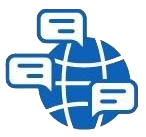

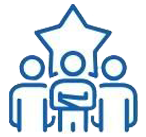


Language in Bloom Series
Cultivating Success for Multilingual English Learners

THREE LIVE
VIRTUAL MODULES
3:30 pm – 5:30 pm

Culturally and Linguistically Responsive Instruction
In this session, educators will explore strategies for creating inclusive classrooms that honor students’ cultural and linguistic identities while advancing language development and academic achievement.
Participants will learn how to connect instruction to students’ lived experiences, scaffold rigorous content, and foster engagement through culturally and linguistically responsive practices.
Universal Design for Learning (UDL) and English Language Development
In this session, participants will explore how Universal Design for Learning (UDL) principles intersect with effective English Language Development (ELD) strategies to support multilingual learners, including those who are dually identified.
Through interactive activities, sample lessons, and reflection, participants will learn how to design inclusive learning environments that honor students’ linguistic and cultural assets, differentiate instruction, and promote equitable access to learning for all. By the end, participants will have developed a deeper understanding on how UDL can be used to specifically support multilingual learners and strategies they can use in their classroom.
Focused Support for Long-Term English/Multilingual Learners
In this session, participants will learn effective strategies for scaffolding rigorous academic content, accelerating the development of academic vocabulary, and embedding language development across the curriculum. Through interactive online discussions and collaborative activities, educators will gain practical tools to design instruction that builds both academic language and content knowledge.
The session will also highlight ways to integrate designated and integrated ELD with grade-level texts and tasks, increase student engagement through culturally and linguistically responsive scaffolding, and use formative assessment data to identify and address language and literacy gaps.

